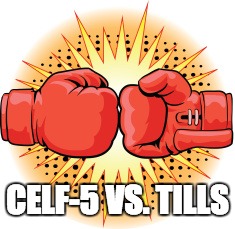 On a daily basis I receive emails and messages from concerned parents and professionals, which read along these lines: “My child/student has been diagnosed with: dyslexia, ADHD, APD etc., s/he has been receiving speech, OT, vision, biofeedback, music therapies, etc. but nothing seems to be working.”
On a daily basis I receive emails and messages from concerned parents and professionals, which read along these lines: “My child/student has been diagnosed with: dyslexia, ADHD, APD etc., s/he has been receiving speech, OT, vision, biofeedback, music therapies, etc. but nothing seems to be working.”
Up until now, I have been providing individualized responses to such queries, however, given the unnerving similarity of all the received messages, today I decided to write this post, so other individuals with similar concerns can see my response. Continue reading Help, My Child is Receiving All These Therapies But It’s NOT Helping
 As a speech-language pathologist (SLP) working with school-age children, I frequently assess students whose language and literacy abilities adversely impact their academic functioning. For the parents of school-aged children with suspected language and literacy deficits as well as for the SLPs tasked with screening and evaluating them, the concept of ‘academic impact’ comes up on daily basis. In fact, not a day goes by when I do not see a variation of the following question: “Is there evidence of academic impact?”, being discussed in a variety of Facebook groups dedicated to speech pathology issues.
As a speech-language pathologist (SLP) working with school-age children, I frequently assess students whose language and literacy abilities adversely impact their academic functioning. For the parents of school-aged children with suspected language and literacy deficits as well as for the SLPs tasked with screening and evaluating them, the concept of ‘academic impact’ comes up on daily basis. In fact, not a day goes by when I do not see a variation of the following question: “Is there evidence of academic impact?”, being discussed in a variety of Facebook groups dedicated to speech pathology issues. 
 Three years ago I wrote a blog post entitled: “
Three years ago I wrote a blog post entitled: “
 In my
In my  Many of my students with Developmental Language Disorders (DLD)
Many of my students with Developmental Language Disorders (DLD)  Because the children I assess, often require supplementary reading instruction services, many parents frequently ask me how they can best determine if a reading specialist has the right experience to help their child learn how to read. So today’s blog post describes what type of knowledge reading specialists ought to possess and what type of questions parents (and other professionals) can ask them in order to determine their approaches to treating literacy-related difficulties of struggling learners.
Because the children I assess, often require supplementary reading instruction services, many parents frequently ask me how they can best determine if a reading specialist has the right experience to help their child learn how to read. So today’s blog post describes what type of knowledge reading specialists ought to possess and what type of questions parents (and other professionals) can ask them in order to determine their approaches to treating literacy-related difficulties of struggling learners. 